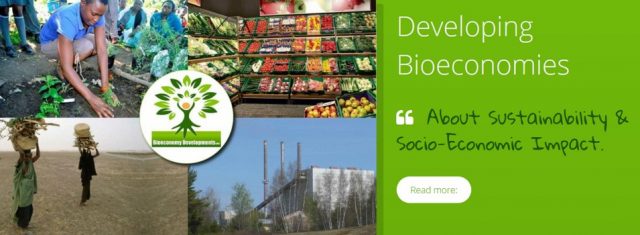Non-food biomass will be procured locally. Such feedstock could be the residues of the food-chain, like corncobs, oat hulls, rice hulls, sunflower husks, cotton seed hulls, sugarcane bagasse or could be forestry residues. Alternative feedstock available are energy crops (e.g. sweet sorghum) that have been selected for their suitability to grow in less fertile areas or as in-fill crops for current sugar plantations.
Large-scale biorefineries may succeed in the western world, but in our opinion, Africa needs smaller production units. IFT provides smaller scale production plants that are the basis for the µ-BioRefinery™ and n-BioRefinery™ designs. DalinYebo has developed the business plans on the basis of a decentralised operation of several small production units. The sole hurdle that’s left to jump-start the New African Agricultural Economy is the development of the biomass supply chains. This activity is location and crop specific. The multi-skilled team at DalinYebo is well experienced to connect the many “dots” in order to co-ordinate and merge farming, processing and global markets, using (or developing) technology and processes that are tailored to specific environments and/or communities.
ConnectingTheDots : Biorefineries will be the biggest short-term contributor to the growth of socioeconomic benefits and a green economy.

From Concept to Commissioning
DalinYebo has solid technical expertise in the bio-renewables space. Its engineers, scientists and project professionals have been involved in the chemical industry (furfural/sugar, ethanol, pulp & paper, etc.) and in electricity generation from direct combustion (i.e. steam generation/steam turbine projects in the sugar and pulp and paper industry).
Experience
Farming
Logistics
Process Plants
Global Marketing
Expertise
Project Structuring and Development
Permitting and Licensing (EIA, IPP, etc.)
Professional Services (Legal, Engineering, Construction, etc.)
Purchase and Off-take Agreements
Since the start of the furfural plant near Durban (South Africa) in the 1970s, South Africa has developed a large knowhow base related to the manufacture of furfural and its many by-products. Whilst the first generation of technical experts have retired. DalinYebo has used their practical knowhow to further build a knowledge base in order to ..
.. provide consulting and mentoring services for the development of the next generation furfural biorefinery.
Such a biorefinery is a first step in building a biobased chemicals and plastics business (e.g. KZN Biobased Chemical Cluster). These biorefineries could also be used as a platform for the manufacture of a range of cellulosic fuels. The images at the end of this page link to a selection of articles that illustrate the versatility and vast potential that exists in this business.
Also See:
Presentation: uThukela GreenEnergyPark™- Biomass-Processing Hub.
Introduction to Ingwavuma GreenEnergyPark™.
Introduction to Yenepa Project.
Explore more dots at dots.dalinyebo.com.
Downloads:
Electricity from Corncobs (Business Plan | Confidential)
uThukela GreenEnergyPark™
Ingwavuma (Business Plan | Confidential)
Furfural: The Platform for KZN Biochemical Cluster (Concept Plan | Confidential)








You must be logged in to post a comment.